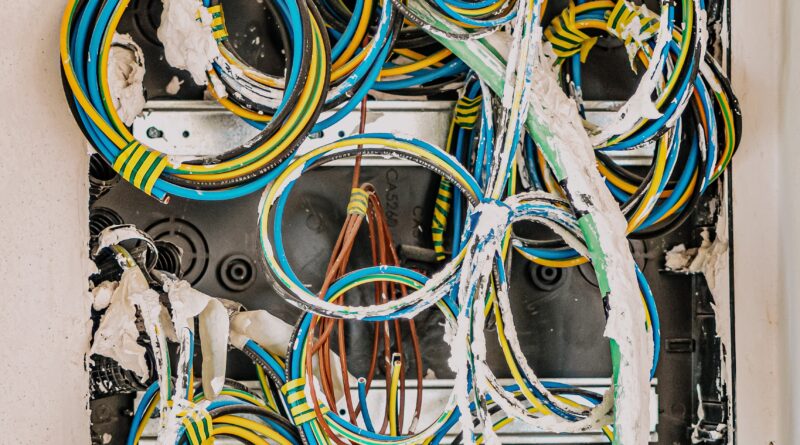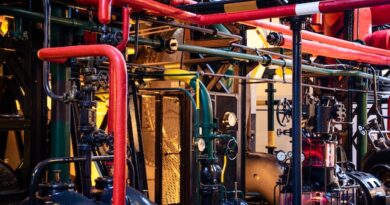The Ultimate Guide to Effective Electrical Safety Inspections in Delhi
Introduction
Welcome to our comprehensive guide on effective electrical safety inspections in Delhi! As a trusted source in the field of electrical safety, we aim to provide you with valuable insights and actionable information to ensure the safety and well-being of your home or business. Delhi, being a bustling city with a rapidly growing infrastructure, requires diligent attention to electrical safety. In this guide, we will cover everything you need to know about conducting thorough inspections and implementing preventive measures to mitigate potential risks. Let’s dive in!
Importance of Electrical Safety Inspections
Electrical safety inspections are vital to safeguarding lives and properties from electrical hazards. In a dynamic city like Delhi, where electrical systems play a significant role in powering homes, businesses, and industries, regular inspections become paramount. Not only do these inspections ensure compliance with safety standards, but they also help identify potential risks and rectify them before they escalate into dangerous situations.
Understanding Electrical Hazards
Before we delve into the inspection process, it’s essential to understand the common electrical hazards that may pose a threat. Some of the primary hazards include:
- Faulty Wiring: Outdated or poorly installed wiring can lead to electrical fires and electrocution.
- Overloaded Circuits: Overloading circuits with excessive electrical load can cause overheating and fire hazards.
- Damaged Electrical Appliances: Frayed cords, broken switches, or damaged appliances can result in electrical shocks or fires.
- Lack of Grounding: Inadequate grounding can lead to electrocution and damage to electrical equipment.
Conducting Effective Electrical Safety Inspections
1. Engage a Qualified Electrician
To ensure a thorough and accurate inspection, it is advisable to hire a qualified electrician with expertise in electrical safety. Their knowledge and experience will help identify potential issues and provide appropriate solutions.
2. Inspection of Electrical Panels
The electrical panel is the heart of any electrical system. During the inspection, the electrician will:
- Check for loose or damaged wiring connections.
- Verify the presence of appropriate circuit breakers and fuses.
- Assess the panel’s capacity to handle the electrical load.
3. Examination of Wiring and Outlets
The inspection process includes a comprehensive evaluation of the wiring system and electrical outlets, where the electrician will:
- Look for signs of wear and tear, such as frayed wires or exposed conductors.
- Verify the correct installation of outlets and switches.
- Ensure the presence of ground fault circuit interrupters (GFCIs) in areas prone to moisture, such as bathrooms and kitchens.
4. Testing Electrical Appliances
Inspectors will assess the safety of electrical appliances by:
- Checking for any visible damages or signs of malfunction.
- Verifying the correct functioning of safety features, such as ground connections.
- Testing for potential leakage of electrical current.
5. Outdoor Electrical Safety
Outdoor areas require specific attention to ensure electrical safety. The inspection process includes:
- Checking the condition of outdoor wiring and lighting fixtures.
- Assessing the grounding of outdoor electrical systems.
- Verifying the presence of adequate protection against weather elements.
Preventive Measures for Electrical Safety
In addition to conducting regular inspections, it’s crucial to implement preventive measures to minimize electrical hazards. Here are some recommended actions:
- Regular Maintenance: Schedule periodic inspections and maintenance to address any potential issues promptly.
- Overload Protection: Avoid overloading circuits by distributing electrical load evenly and using surge protectors.
- Ground Fault Protection: Install GFCIs in appropriate areas to protect against electrical shocks.
- Electrical Fire Safety: Equip your premises with fire extinguishers and smoke detectors, and ensure their regular maintenance.
Conclusion
Ensuring electrical safety in Delhi requires a proactive approach, and regular inspections play a vital role in identifying and mitigating potential hazards. By engaging qualified electricians and implementing preventive measures, you can create a safe environment for yourself, your family, and your business. Remember, electrical safety is everyone’s responsibility!




